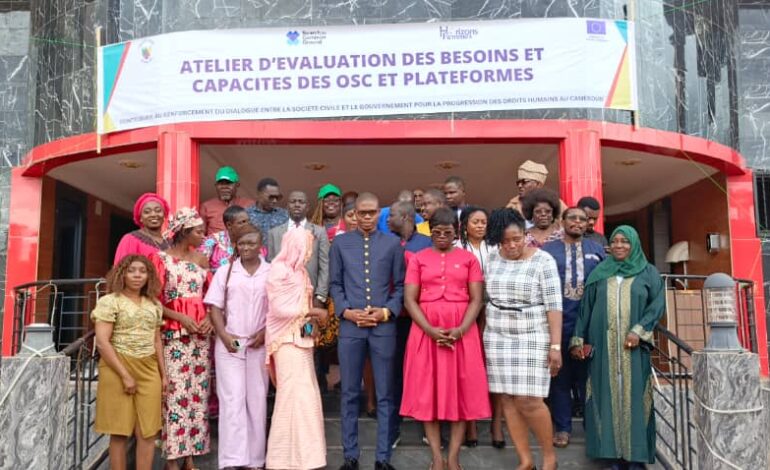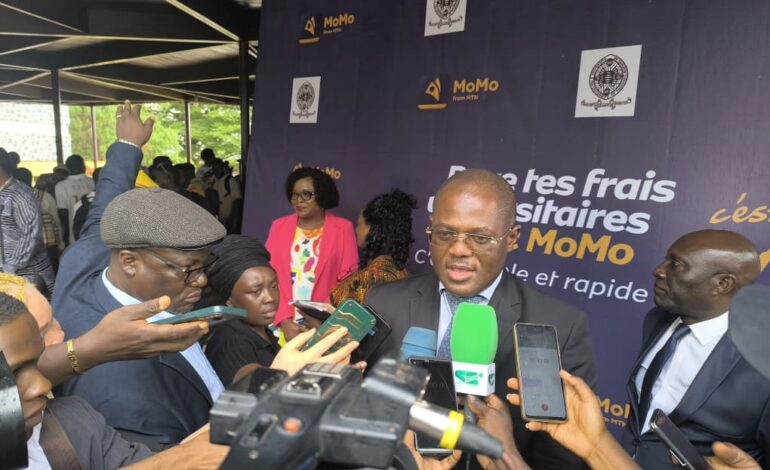Elections governing body in Cameroon officially launched on September 17, 2025, the use of tactile jackets to enable visually impaired persons to cast their votes during the upcoming presidential.
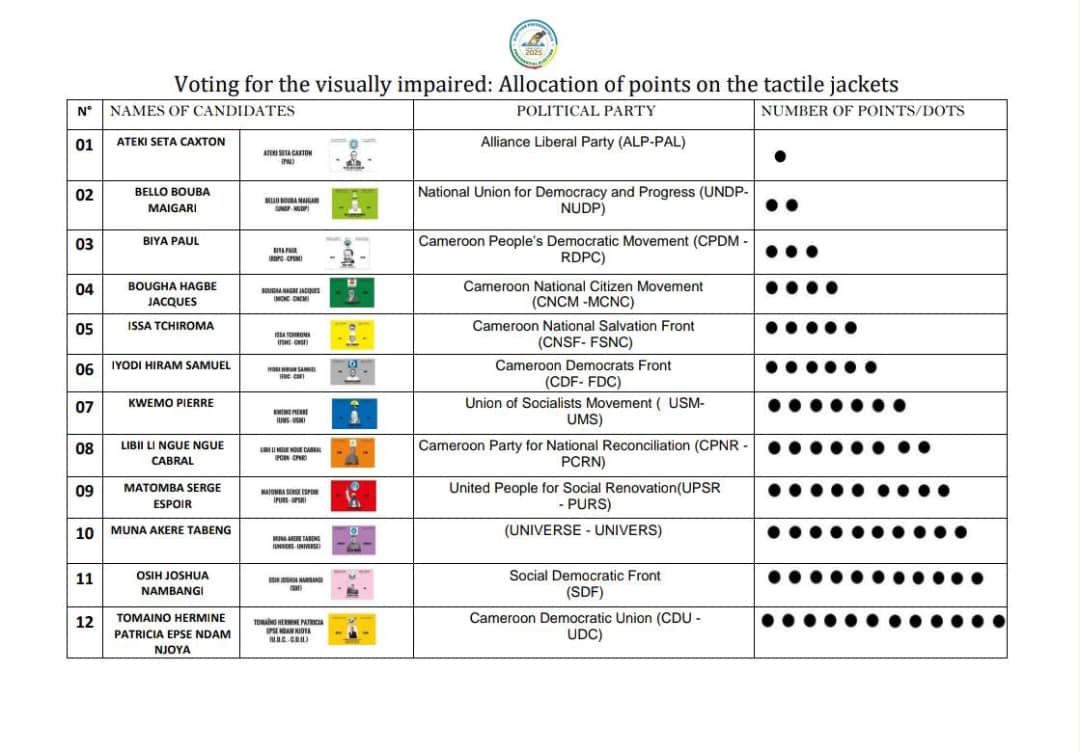
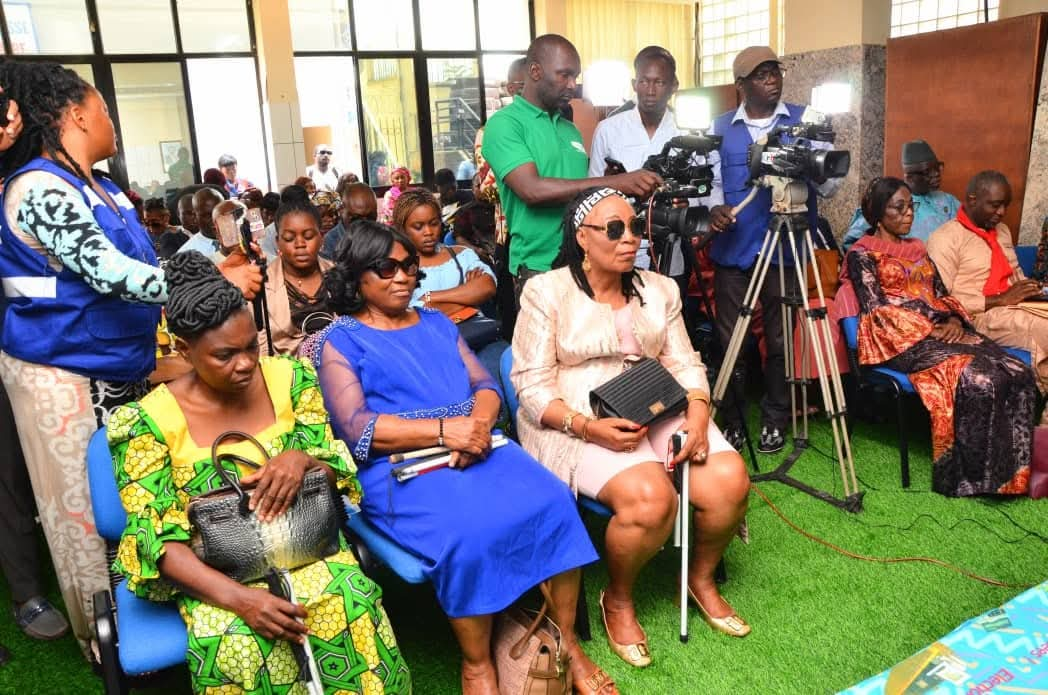
Ahead of the October 12, 2025, presidential election, Elections Cameroon has launched a new mechanism that facilitates the voting process for visually impaired persons.
The tactile jackets, as it is called, were officially presented by ELECAM to leaders of political parties, heads of associations or organizations of people living with disabilities(PWDs), and the media.
The Director General of Elections Cameroon, Dr. Essousse Erik, chaired the ceremony alongside Deputy Director General, Abdoul Karimou.
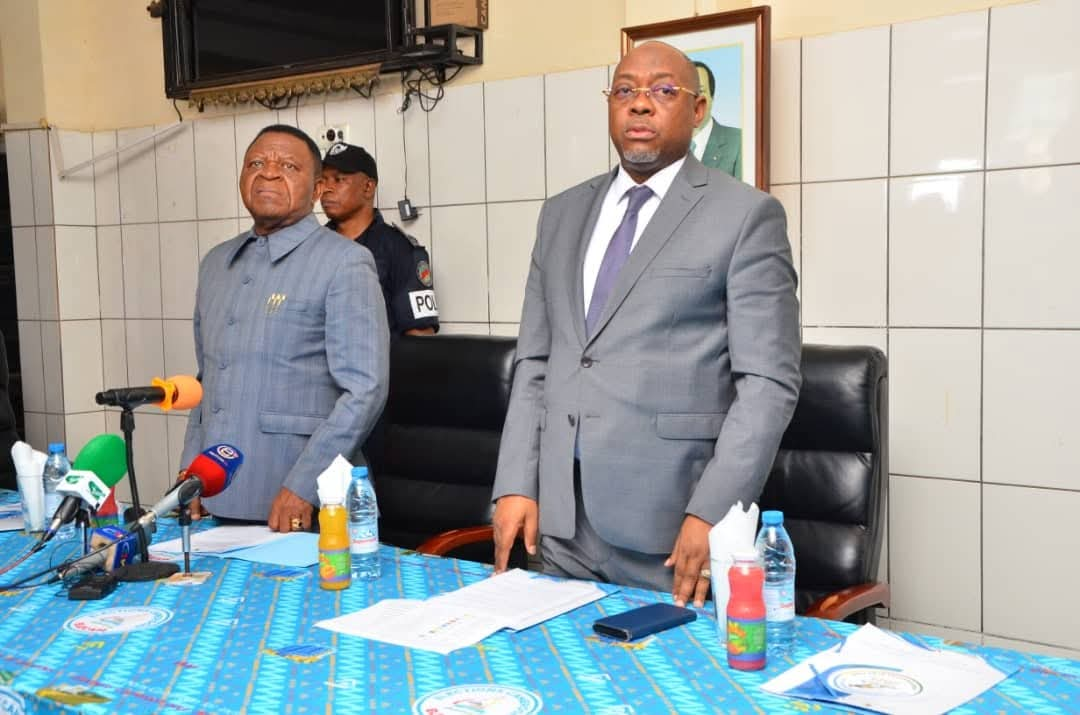
In his welcoming speech, Dr. Essousse Erik, Director General of Elections Cameroon, said this newly set up mechanism comes in to reinforce the inclusion policies put in place by the government and actions to leave no one behind.
The Director General of ELECAM said: “Through this sensitization campaign our objective is to firstly inform how the tactile pocket functions so that everyone should know how to use it without any difficulty on the election day. Secondly, we wish to assure you that your vote counts and that all measures have been taken to ensure that participation is effective, secret, and respected.”
“Democracy becomes stronger when it offers freedom of speech to all, without any distinction whatsoever. Usage of the tactile jacket is not only an electoral technique, it is above all a powerful symbol: that of equal rights, inclusion and respect of diversity…” He added.
The use of the tactile jackets was demonstrated in French and English, respectively, by Mr. Ekotto Franck of ELECAM’s communication unit and Mr. Somb Lingom, president of the Association for the Promotion of Assisted Technologies and the Education of the Blind.
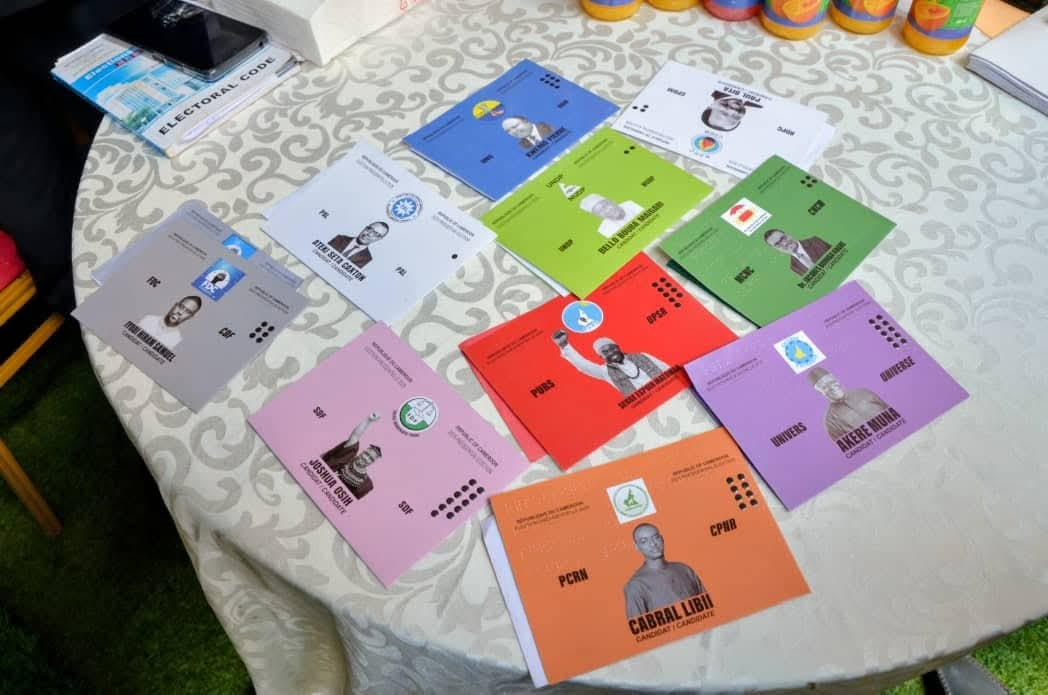
Speaking to media practitioners at the end of the launch event, Dr. Essousse Erik once more outlined the importance of this innovative tool.
He stated: “What we have to remember from this voting mechanism for the visually impaired is that it now allows them to be much more inclusive for all of them. Before, there was only writing. Now, all the visually impaired can write. So, now we have to find a mechanism that integrates those who write and those who do not write. It is in the principle of the tactile. That is, the points that are on this cover allow those who are not visually impaired to identify their candidate by the points that are on the cover. This means that from 1 to 12, if your candidate is the first, or the second, or the third, you identify him by the points that are on the cover. So I believe that now our system, which is an inclusive system, allows all the visually impaired to vote in all serenity, in all confidentiality, in all dignity.”
On his part, Somb Lingom, prominent journalist living with a visual impairment and president of the Association for the Promotion of Assisted Technologies and the Education of the Blind, who actively contributed to this new mechanism set up by ELECAM, appreciated this move.
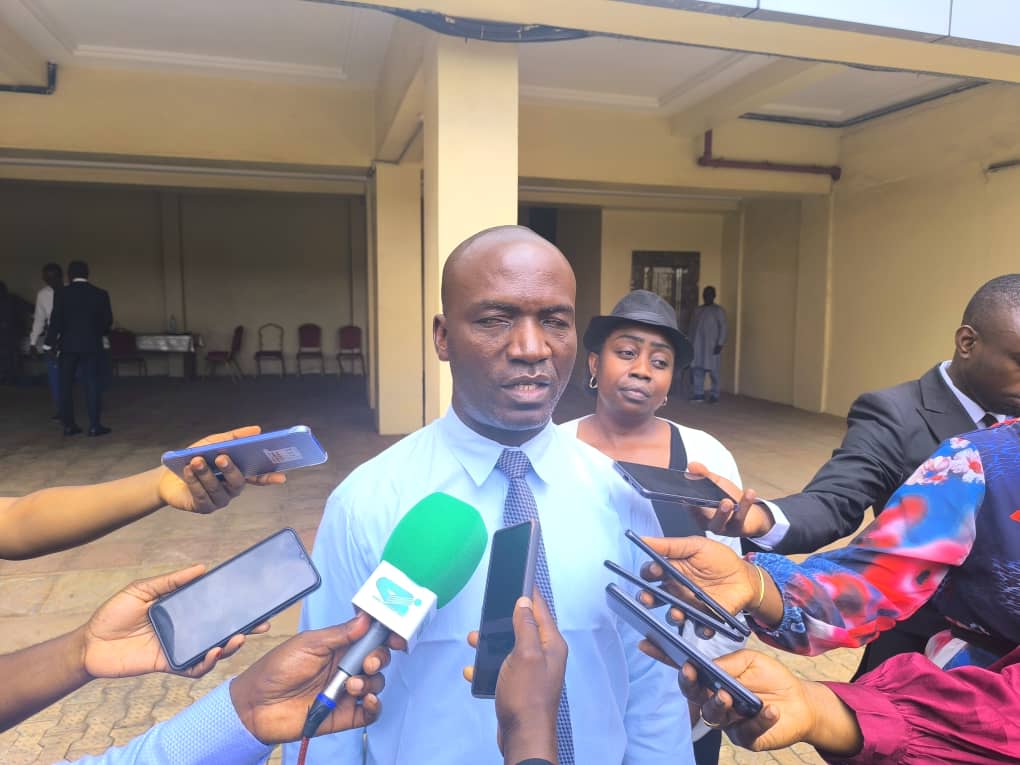
“We highly salute what ELECAM has done by coming up with these tactile jackets, which are helping blind persons or persons with visual impairment to cast their votes confidentially and secretly, because one of the worries that people with visual impairment had was the capacity of voting whom they want to vote without any third party knowing what they are doing. Now, thanks to ELECAM, it is possible, and we highly appreciate that. This is a serious advancement or progress in the democratic move and political inclusion. I think from these steps, political parties will understand that if ELECAM is doing this, it means that they too should open broader ways to persons with disabilities. Let me recall that persons with disabilities in general represent 10 percent of the overall population in Cameroon. So, if we think we consider that Cameroon has about 30 million inhabitants, then you have about three million people who are living with disabilities. You can agree with me that this is a very strong electoral force that political parties have to reckon with…”
Other key actors such as the Executive Director of the platform Inclusive Society for Persons with disabilities in Cameroon, praised the initiative and outlined the fact that ELECAM is making great strides for an inclusive and participatory electoral process.
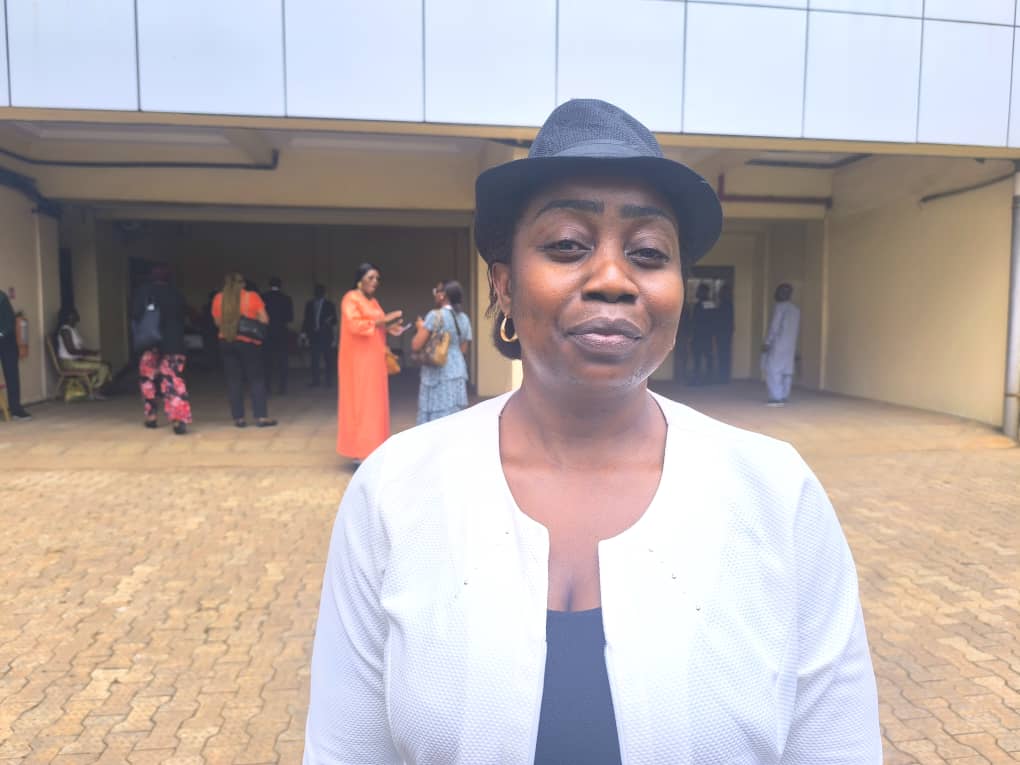
Emmanuelle Tchotchom saluted this innovative move and said: “This is a great innovation of Elections Cameroon because a lot of visually impaired people do not read Braille. So the handwritten bulletin with dots that identifies each candidate is really welcomed because visually impaired people are already there. So, what I can say is that we have to appreciate such efforts. And when it’s good, it’s good. You have to congratulate what is good. So we think it’s perfect.”
Moreover, as concerns the active participation of people living with disabilities, Emmanuelle Tchotchom added: “The Inclusive Society platform, of course, will designate people with disabilities to be part of the process in most voting offices. At the moment, we are waiting for the accreditation of the Ministry of Territorial Administration, MINAT. Indeed, we will have observers, people with disabilities, who will do the field report. And then we will be able to come back with our general observations regarding the entire electoral process that is underway.”
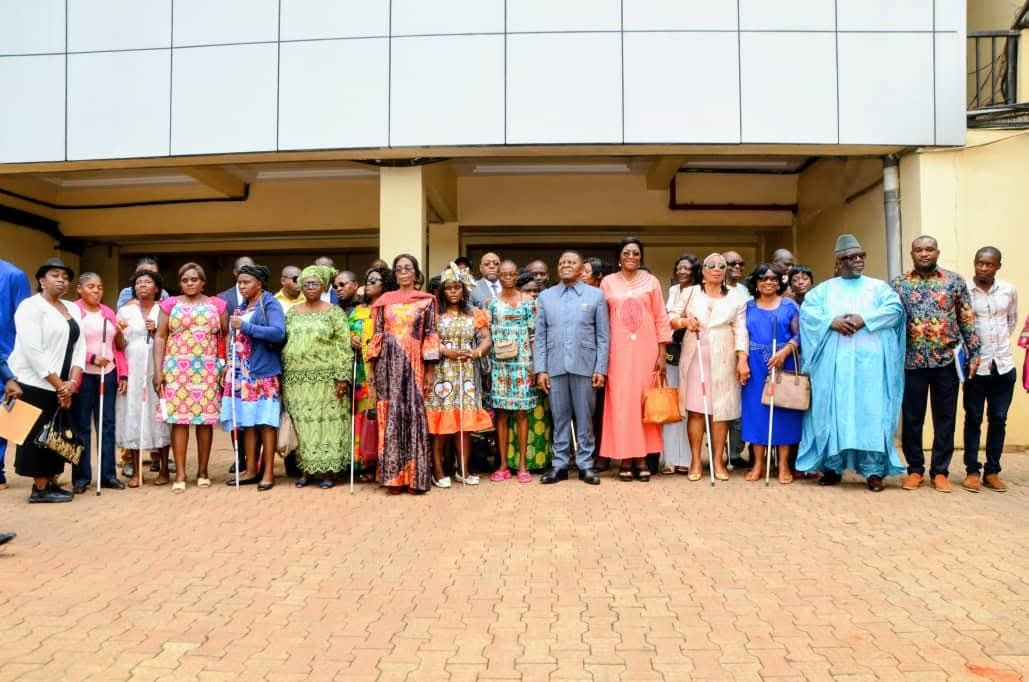
Elise Flore Kenimbeni


